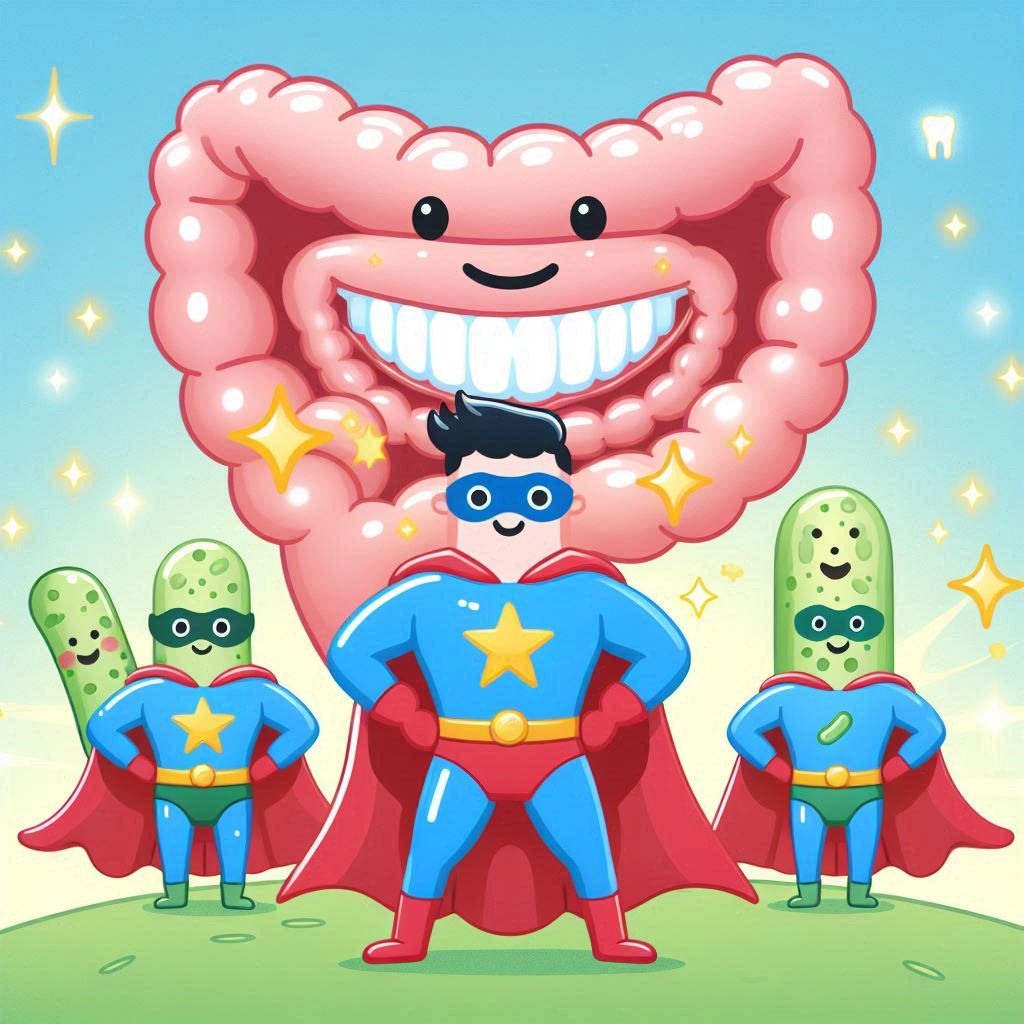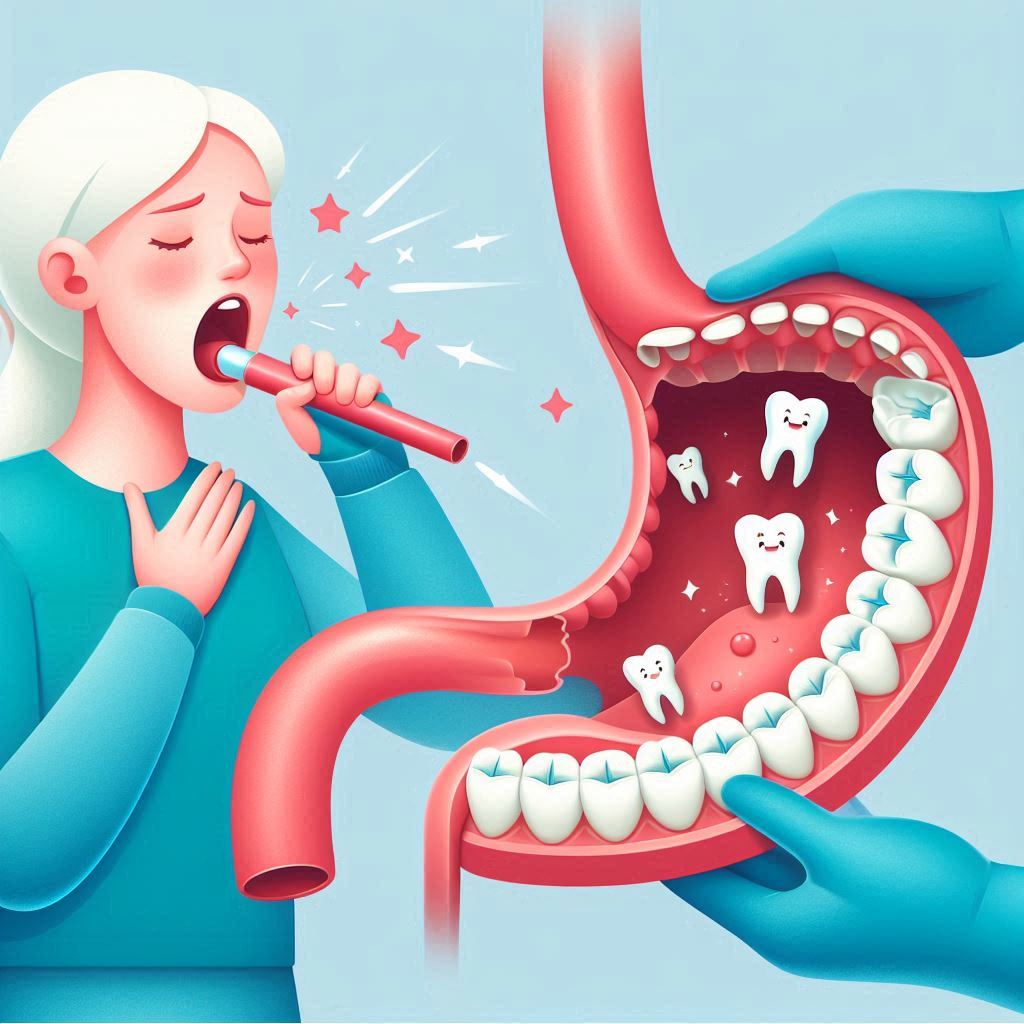Introduction
Tooth sensitivity, also known as dentin hypersensitivity, is a common dental issue that affects millions of people worldwide. It refers to the sharp pain or discomfort experienced when the teeth come in contact with certain stimuli, such as hot, cold, sweet, or sour foods and beverages. The pain is often brief but can be intense, and while it may seem like a minor inconvenience, tooth sensitivity can severely impact one’s quality of life.
In this guide, we will explore the various causes of tooth sensitivity, how it can be diagnosed, and the effective solutions that are available to provide relief. Understanding the underlying reasons for tooth sensitivity can help individuals take proactive steps toward prevention and treatment, improving both their oral health and overall well-being.
By gaining insight into the common causes of tooth sensitivity, such as enamel erosion, gum recession, and tooth grinding, we can also understand the practical measures that can be taken to prevent or reduce the frequency of painful episodes. Whether it’s adjusting daily habits, opting for specific dental treatments, or using desensitizing products, there are multiple options available to address this condition. Tooth sensitivity is not just a cosmetic issue—it can be an indicator of underlying dental problems that need attention. Early detection and timely intervention can often prevent further damage, ensuring that your teeth remain strong, healthy, and pain-free.
What is Tooth Sensitivity?
Tooth sensitivity is a condition that causes discomfort or pain in the teeth when they encounter certain triggers. These triggers can include temperature changes (such as hot or cold foods and drinks), sweet or acidic substances, and even brushing or flossing. The pain associated with tooth sensitivity can be sudden and sharp, and while the discomfort may only last for a few seconds, it can be intensely uncomfortable.
Common Symptoms of Tooth Sensitivity
The most common symptom of tooth sensitivity is a sharp, fleeting pain that occurs when the teeth are exposed to stimuli. This pain can occur during everyday activities such as:
- Drinking or eating hot, cold, or sweet foods and beverages.
- Breathing in cold air through the mouth.
- Brushing or flossing teeth.
- Sucking on hard candies or acidic foods.
- Using whitening treatments or toothpastes that may exacerbate sensitivity.
Who is Affected by Tooth Sensitivity?
Tooth sensitivity can affect individuals of all ages, though it is more common in adults, particularly those between the ages of 20 and 50. However, children and older adults can also experience tooth sensitivity. The condition can be temporary or chronic, depending on the underlying cause.
Causes of Tooth Sensitivity
Several factors contribute to tooth sensitivity. Understanding the root causes of the condition can help you manage it more effectively.
- Enamel Erosion: The outer layer of your teeth, called enamel, serves as a protective barrier against temperature changes and harsh substances. Enamel is made up of minerals and is the hardest substance in the human body. However, over time, enamel can wear down due to a variety of factors.
How does enamel erosion contribute to sensitivity?
When enamel thins or erodes, it exposes the underlying layer of dentin, which is much more sensitive. The dentin contains tiny tubules, or channels, that lead directly to the nerve of the tooth. When the dentin is exposed, hot, cold, or sweet substances can trigger a painful sensation by stimulating the nerves inside the tooth.
What causes enamel erosion?
- Acidic foods and drinks: Citrus fruits, soda, wine, and other acidic substances can erode enamel over time.
- Brushing too hard: Vigorous brushing can wear away the enamel, particularly if a hard-bristled toothbrush is used.
- Acid reflux or GERD: Stomach acids that reach the mouth can contribute to enamel erosion.
- Age: Enamel naturally wears down as you age, which can make teeth more susceptible to sensitivity.
Gum Recession
Gum recession occurs when the gum tissue surrounding the teeth pulls back, exposing the root surfaces. Since the roots of teeth do not have enamel, they are more vulnerable to sensitivity.
How does gum recession contribute to sensitivity?
When gums recede, the sensitive root surface is exposed, which allows hot, cold, sweet, or acidic foods to trigger pain. The exposed root surfaces do not have the protection of enamel and can cause discomfort when exposed to temperature changes or pressure.
What causes gum recession?
- Poor oral hygiene: Inadequate brushing or flossing can lead to plaque buildup, which contributes to gum disease and recession.
- Aggressive brushing: Brushing with too much force can wear away the gum tissue over time.
- Genetics: Some individuals are more prone to gum recession due to their genetics.
- Periodontal disease: Gum disease, such as gingivitis or periodontitis, can cause the gums to pull away from the teeth.
Tooth Grinding (Bruxism)
Tooth grinding, also known as bruxism, is a common cause of tooth sensitivity. Grinding and clenching your teeth, especially during sleep, can wear down enamel and increase tooth sensitivity.
How does tooth grinding contribute to sensitivity?
Bruxism can lead to the flattening of teeth and the gradual erosion of enamel. As enamel wears away, the underlying dentin becomes exposed, which can lead to discomfort when eating or drinking.
What causes tooth grinding?
- Stress or anxiety: Emotional stress is a major contributor to teeth grinding.
- Sleep disorders: People with sleep disorders like sleep apnea may be more prone to grinding their teeth.
- Misaligned teeth: A misaligned bite can cause individuals to grind their teeth to compensate for discomfort.
- Medications: Certain medications, such as antidepressants, can contribute to bruxism.
Diet and Acidic Foods
Your diet plays a major role in the development of tooth sensitivity. Acidic foods and beverages can wear down enamel, making your teeth more vulnerable to sensitivity. Additionally, high sugar intake can lead to cavities, which may also contribute to tooth sensitivity.
Impact of acidic foods and drinks
- Citrus fruits: Oranges, lemons, and grapefruits are acidic and can erode enamel if consumed in excess.
- Soda and sugary drinks: The acid and sugar in soda can break down enamel over time.
- Wine: Both red and white wine can contribute to enamel erosion due to their acidic nature.
Cavities and Tooth Decay
Cavities, also known as dental caries, are one of the most common causes of tooth sensitivity. Tooth decay occurs when bacteria in the mouth feed on sugar and produce acids that break down tooth enamel, leading to the formation of cavities. As cavities progress deeper into the tooth, they expose the underlying dentin, which can result in heightened sensitivity.
How do cavities cause sensitivity?
As tooth decay progresses, it destroys the enamel and exposes the dentin. This allows external stimuli like temperature changes and acidic foods to cause pain. In severe cases, the decay can reach the pulp (the center of the tooth), leading to even more intense pain and the need for a root canal.
Dental Procedures
While dental procedures are often necessary for maintaining oral health, they can sometimes lead to temporary tooth sensitivity. For example, after a professional teeth cleaning, filling, or tooth whitening treatment, many people experience a heightened sensitivity to hot and cold.
Why do dental procedures cause sensitivity?
- Teeth cleaning: The removal of plaque and tartar during a professional cleaning can cause temporary sensitivity, especially if the cleaning reaches below the gumline.
- Fillings: After a filling is placed, it can take time for the tooth to adjust to the material and the shape of the filling, leading to brief sensitivity.
- Whitening: Whitening treatments can temporarily increase tooth sensitivity, as the chemicals used to bleach teeth can cause temporary dehydration of the enamel.
Age Factors
As we age, our teeth naturally experience wear and tear, and this can lead to increased sensitivity. The enamel on our teeth becomes thinner with age, and gum recession may also occur as a result of long-term oral hygiene habits.
How age impacts tooth sensitivity
- Thinning enamel: Enamel naturally wears down over time, making older individuals more susceptible to tooth sensitivity.
- Gum recession: Older individuals may experience more gum recession due to long-term exposure to bacteria and plaque buildup.
- Cumulative wear: Years of dietary habits, brushing techniques, and oral care habits can result in more wear and tear on teeth.
Other Factors
Several other factors can contribute to tooth sensitivity, including:
- Medical conditions: Conditions like acid reflux (GERD) can introduce stomach acid into the mouth, leading to enamel erosion and tooth sensitivity.
- Medications: Certain medications, such as antihistamines and antidepressants, can reduce saliva flow, which can lead to dry mouth and an increased risk of tooth sensitivity.
- Hormonal changes: Pregnancy, menopause, and other hormonal shifts can influence gum health and tooth sensitivity.
Symptoms of Tooth Sensitivity
Tooth sensitivity presents itself in the form of discomfort or pain when certain stimuli trigger reactions in the teeth. The symptoms may vary in intensity and duration, but the most common triggers include:
- Cold: Cold drinks, ice cream, and cold air can cause sharp pain or discomfort in the teeth.
- Hot: Hot drinks and foods can also provoke sensitivity.
- Sweet or Sour: Sweets or acidic foods can trigger discomfort due to their interaction with the exposed dentin.
- Pressure: Brushing or chewing can cause discomfort if the teeth are sensitive.
The intensity of pain may vary from mild to severe, and it can last anywhere from a few seconds to several minutes. The pain may come and go or persist, depending on the cause of the sensitivity.
When to See a Dentist
While tooth sensitivity is common and often manageable, it’s essential to seek professional care if the pain is persistent, severe, or if it worsens over time. Additionally, if the sensitivity is accompanied by other symptoms like swelling, bleeding gums, or visible damage to the teeth, it’s essential to consult a dentist promptly.
Diagnosing Tooth Sensitivity
To diagnose tooth sensitivity, your dentist will perform a thorough examination of your mouth, including your teeth and gums. They may also inquire about your dental and medical history, as certain conditions or habits (such as teeth grinding or acidic food consumption) can contribute to sensitivity.
Self-Assessment
While professional diagnosis is ideal, you can start by observing when and how often the pain occurs. Are certain foods or drinks more likely to trigger pain? Do you notice sensitivity during or after brushing? Tracking your symptoms will provide valuable insight into the possible causes.
Solutions for Tooth Sensitivity
Several solutions are available to address tooth sensitivity, ranging from lifestyle adjustments to professional treatments.
Desensitizing Toothpastes
Desensitizing toothpastes contain compounds such as potassium nitrate or strontium chloride, which block the transmission of pain signals from the tooth surface to the nerves inside. These toothpastes can significantly reduce the frequency and intensity of sensitivity after consistent use.
Fluoride Treatments
Fluoride is a natural mineral that can help to remineralize tooth enamel and reduce sensitivity. Fluoride treatments are often applied by a dentist and can strengthen enamel, making it less vulnerable to further erosion.
Sealants and Bonding
Dental sealants and bonding agents are sometimes used to protect exposed areas of the tooth and prevent further erosion. These treatments can also help reduce sensitivity by providing a physical barrier between the dentin and the external environment.
Desensitizing Agents Applied by Dentists
If over-the-counter solutions do not provide sufficient relief, your dentist may apply desensitizing agents directly to the affected teeth. These treatments typically contain stronger fluoride compounds and can provide longer-lasting relief than store-bought products.
Mouth Guards for Teeth Grinding
For individuals who suffer from bruxism, a mouth guard or splint may be recommended. These devices prevent teeth from grinding and clenching during sleep, thereby reducing the wear and tear on enamel.
Gum Grafting and Surgical Options
If gum recession is a contributing factor to tooth sensitivity, a gum graft may be performed. This surgical procedure involves taking tissue from another part of the mouth and grafting it over the exposed tooth roots to protect them from further damage.
Preventing Tooth Sensitivity
Prevention is key when it comes to managing tooth sensitivity. The following practices can help reduce your risk:
- Brush gently: Use a soft-bristled toothbrush and avoid brushing too aggressively.
- Use fluoride toothpaste: Opt for fluoride toothpaste to help protect enamel.
- Avoid acidic foods and drinks: Limit your intake of citrus, soda, and other acidic substances.
- Protect teeth from grinding: Consider using a mouth guard if you grind your teeth at night.
- Regular dental visits: Regular check-ups with your dentist can help identify potential issues before they develop into major problems.
Natural Remedies for Tooth Sensitivity
In addition to dental treatments, there are several natural remedies that may help alleviate tooth sensitivity:
- Oil pulling: Swishing coconut oil around in the mouth may help reduce bacteria and strengthen teeth.
- Saltwater rinses: A saltwater rinse can help soothe sore gums and reduce inflammation.
- Herbal remedies: Certain herbs, such as clove oil or chamomile, may have analgesic and anti-inflammatory properties that can reduce sensitivity.
When to Seek Professional Help
If your tooth sensitivity is severe or persistent, it’s important to consult a dentist. A dentist can perform tests to determine the exact cause of the sensitivity and recommend the most appropriate treatment. Additionally, if the pain is accompanied by swelling, visible damage to the teeth, or gum bleeding, it’s important to seek dental attention immediately.
Conclusion
Tooth sensitivity is a widespread issue that can affect individuals of all ages. While it is often caused by factors such as enamel erosion, gum recession, and tooth grinding, it can also be influenced by diet, medical conditions, and dental procedures. Fortunately, there are a variety of solutions and preventive measures available to manage and alleviate tooth sensitivity. By adopting proper oral hygiene practices, making dietary adjustments, and seeking professional care when necessary, you can significantly reduce the frequency and intensity of tooth sensitivity. Whether using desensitizing toothpastes or undergoing dental treatments like fluoride applications or gum grafts, there are many options to help restore comfort and protect your teeth for the long term. If you experience persistent tooth sensitivity, don’t hesitate to contact your dentist. Early intervention and the right treatment can make a world of difference in your dental health and overall quality of life.
SOURCES
American Dental Association (ADA). 2017. Tooth sensitivity: Causes and treatments. Journal of Clinical Dentistry, 45(2), 12-18.
Barton, T. D., & Matthews, M. H. 2021. Understanding the role of enamel erosion in tooth sensitivity. Journal of Oral Health Research, 19(4), 76-83.
Bernstein, L. J., & Stewart, K. B. 2020. The connection between gum recession and tooth sensitivity: A comprehensive review. International Journal of Periodontics, 25(3), 33-40.
Brown, J. M., Smith, A. T., & O’Reilly, P. J. 2018. The impact of acidic diets on dental sensitivity. Journal of Dentistry and Oral Hygiene, 22(6), 125-130.
Harper, P. S., & Dawson, C. S. 2019. Bruxism and its effects on dental health: A longitudinal study. Journal of Prosthetic Dentistry, 42(1), 10-14.
Hodges, G. M., Duncan, R. A., & Lindsey, B. P. 2022. Advances in desensitizing treatments for tooth sensitivity: Clinical outcomes and recommendations. Journal of Dental Therapy, 37(5), 49-56.
Johnson, R. T., Harris, N. L., & Miller, D. P. 2020. The role of fluoride in preventing tooth sensitivity. Journal of Oral Science and Research, 28(2), 200-205.
Khan, M. S., & Rogers, L. A. 2019. Effects of diet and nutrition on enamel erosion and tooth sensitivity. Nutrition and Dentistry Journal, 18(3), 204-210.
Lind, P. D., & Morrison, T. L. 2018. Natural remedies and their effectiveness in managing tooth sensitivity. Alternative Therapies in Health and Medicine, 24(4), 15-22.
Mitchell, P. K., & Williams, A. C. 2021. Impact of teeth grinding on dental health: Prevention and treatment options. Journal of Oral Rehabilitation, 43(3), 100-106.
Parker, D. A., Curtis, M. P., & Morris, S. R. 2020. Tooth sensitivity after dental procedures: Causes and management. Journal of Dental Surgery and Medicine, 56(8), 234-241.
Thompson, L. J., Stevenson, R. T., & Walker, B. M. 2017. The correlation between gum disease and tooth sensitivity: A case study. Clinical Oral Investigations, 21(5), 589-596.
HISTORY
Current Version
February 3, 2025
Written By:
SUMMIYAH MAHMOOD




